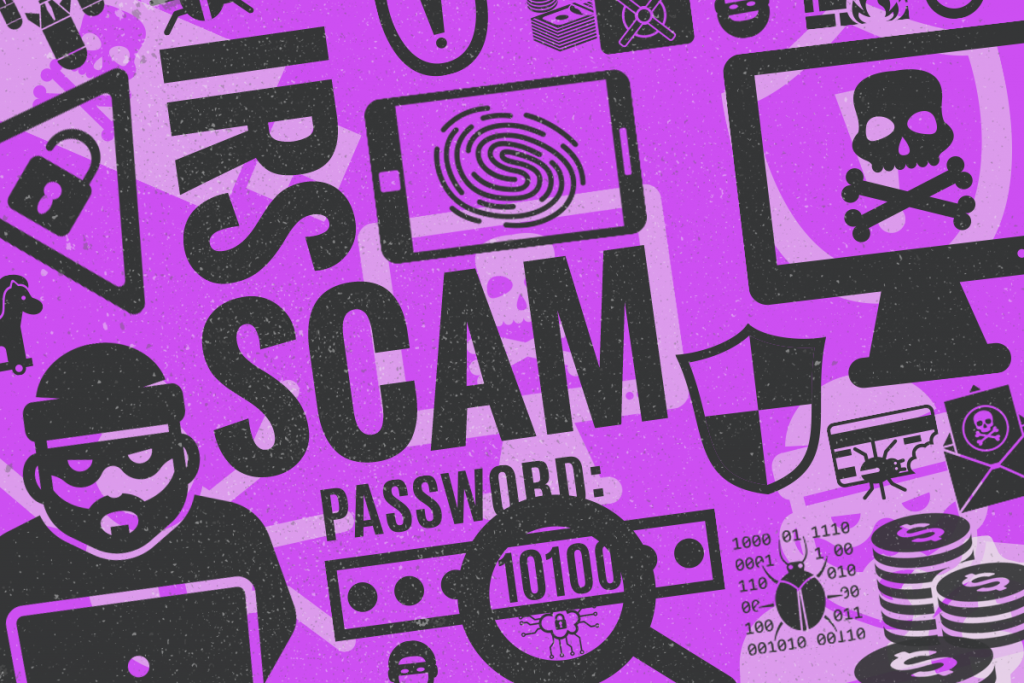
The tax year has ended and many business, employees and employers need to settle any due tax with the government. While for many this may go unnoticed, as many countries collect their tax throughout the year in an automatic and regular process, they all should take a closer look and actively check that their data is correct, to avoid over payments or risking owing some money to the government. If paying tax wasn’t enough to worry about, scammers have seen in recent years an opportunity here to make easy money out of legit and honest taxpayers.
Here are some tips from cybersecurity and fraud expert Adam Levin to avoid falling prey of heartless scammers:
1. Your Tax Advocate Could Be Your Tax Adversary
Now scammers are not only pretending to be IRS agents, they are claiming to be calling from the Government department.The fraudsters spoof the caller id so it looks like it is coming from the legitimate hotline number.
Calls may also be ‘robocalls’ that prompt victims to call back. Once the taxpayer returns the call, they are asked for personal information including their SSn or ITIN, individual taxpayer identification number. The fraudster will also demand immediate payment of supposed back taxes via prepaid card, wire transfer or even ITunes cards. They are often hostile and threaten the victim with jail time.
Scammers will often use fake names and IRS badge numbers to identify themselves and they will spoof the caller id so the call looks official. Consumers need to watch out for red flags like the IRS will never call, email or text you. They use snail mail. They will never threaten you with jail time or demand funds via wire transfer, pre-paid card or iTunes card. They will never ask for your SSn or credit card information over the phone. If you receive a call, text or email supposedly coming from the IRS, hang up and don’t click on any links. If you are the victim of an imposter scam, contact the IRS fraud department and report the fraud to the FTC.
2. Tax Preparer Software Clone Sites and Phishing
There is a new scam going around where there are pop up ads and phishing emails that look like they are from legitimate tax software companies like TurboTax and the software is offered at a major discount. Consumers need to beware of these deep discounts and buying software from third party sites.
There is also a spike in phishing emails coming from “Turbotax”. Once the consumer clicks on the link in the email, malware is installed and their personal info is swiped. Or they are taken to clone website, where they are prompted to enter personal/credit card info and the scammers are off the races.
Beware of third party sites offering tax prep software at discounted rates. Only go the the legitimate tax software site. Don’t click on links or attachments, even if the email looks legitimate.
To avoid clone sites, be sure to type the actual URL into the address bar, instead of clicking on the link in the email or on a pop up ad. Look to make sure the site has the padlock and HTTPS which shows that it is a secure site. Intuit will never send you an email with a “software update” or “software download” attachment. You won’t receive emails asking you to send in your login info or password info. And Intuit/Turbo tax won’t ask for credit card or banking info in an email
3. IRS Phone Scam – An Oldie, but Still Going Strong
IRS imposter phone scams spike during tax season where someone pretending to be from the IRS contacts a consumer stating they owe back taxes and threatens them with jail time if they don’t pay. These fraudsters prey on fear and many consumers give in, paying a bogus fee through a pre-paid card, wiring money or even an Itunes card. Golden rule – the IRS never calls, emails or texts. They correspond through snail mail. If you receive these calls, hang up.

4. W-2 Scam
Imposters are also using phishing schemes to target the HR departments of businesses asking for W-2 or W-9 information. In these spear phishing schemes, the emails may appear legitimate, from a supposed manager or supervisor, but they are designed to steal important business financial documents. If you receive this email, don’t respond.
5. Child ID Theft
There have been reports on how the personal data of infants is being sold on the black market as a result of all of major breaches, especially the Equifax breach.
Fraudsters target children’s data because they have clean, pristine credit profiles and they can use this data for a host of ID theft schemes, including tax related, medical, financial and even criminal.
Parents need to be on high alert for child ID theft and should create a credit profile for their child and then freeze it, since credit freezes are now free.
6. Consumers need to be the ultimate guardians of their own personal data, finances and identity and follow the 3Ms – Minimize the Risk of Exposure, Monitor and Manage the damage.
To combat tax fraud, consumers need to file early, take advantage of the PIN if they have been a victim of fraud, use long and strong passwords, enable two factor authentication, use legitimate tax preparers, store important tax docs on an encrypted thumb drive and never give out personal or financial info to someone who contacts you, even if the caller id looks legit, because these calls can be spoofed.
Check your credit on sites like AnnualCreditReport.com and check your accounts for any suspicious activity. Sign up for transaction monitoring alerts to check for any suspicious activity. If you have been the victim of ID theft, consider freezing your credit.
To manage the damage of an identity theft incident, many consumers may not be aware that through their insurance company, financial institution or the HR department where they work, they may already be enrolled in an identity theft protection program. They should check with the organization, find out if they are enrolled or if they are not, look into the most cost effective way to get enrolled.
HedgeThink.com is the fund industry’s leading news, research and analysis source for individual and institutional accredited investors and professionals



































